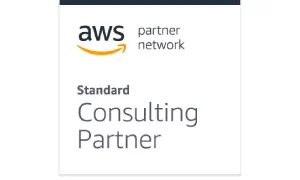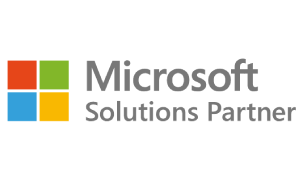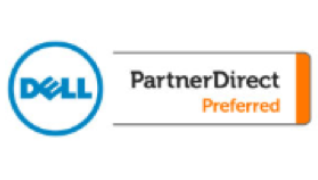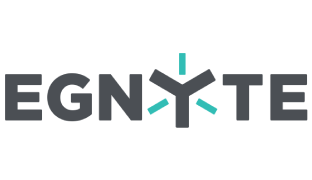
Reduce your risks while building a defensible, documented compliance strategy.
Why choose Cantey Tech Consulting to help you uphold GLBA compliance?
25+ Years
Proven IT expertise you can trust
74%
Issues resolved on the first call
350+ Businesses
Rely on our expert IT solutions
Build a Clear Path to Compliance
When privacy rules shift and your practices don’t, your team can fall out of compliance fast. Without strong guidance, minor oversights can trigger audits or penalties.
We write and maintain clear policies for data privacy, encryption, and incident response. Our guidance helps your team act with confidence and meet regulatory demands. You stay audit-ready with less internal disruption.
We also review policies regularly and support policy rollouts through training. You gain control over sensitive data and limit outdated practices.
Stay Audit-Ready Without The Stress
Disorganized logs, missing documentation, and vague records weaken your compliance standing. This causes stress and wastes time during critical reviews.
We centralize your compliance records and maintain detailed, time-stamped logs. You get organized proof of every control, action, and response. This helps you meet audit demands without last-minute work.
You stay prepared with clean, verified evidence at your fingertips. That keeps your audit process fast and controlled.
Align All IT Operations With Your Security Policy
Unsecured devices, weak cloud settings, and exposed networks pose a risk even when policies are in place. Without enforcement, your team may follow guidance but still face threats.
We use vCIO-led services to align technology with your security goals. We apply strong network controls, enforce endpoint protection, and configure secure cloud settings.
You reduce attack surfaces without adding complexity. We maintain these controls and adjust them as your needs shift.
Strengthen GLBA Compliance With a Practical Policy
Financial institutions are facing increasing pressure to comply with GLBA requirements. Weak or outdated policies around data handling, vendor oversight, and breach response can lead to regulatory action.
We help you write or update policies that align with GLBA. Our team develops incident response plans, security standards, and vendor review procedures that reflect real risks.
We also support policy implementation through training and regular reviews. Keep your practices aligned with changing GLBA expectations.
Be Ready For Every GLBA Review
Without well-documented safeguards and accessible evidence, your institution may face delays, citations, or increased scrutiny. Missing details can raise red flags with examiners.
We help you prepare by organizing key evidence and documenting your safeguards program. Our team works with you to map controls, gather proof, and answer examiner questions. You meet expectations without added pressure.
We stay current on GLBA examiner focus areas and help you respond with precision.
Keep Your Team Aligned With GLBA Changes
Outdated knowledge and inconsistent training can cause gaps in GLBA compliance. Staff may not recognize risks or respond appropriately to issues. These missteps can lead to violations during reviews.
We provide clear, role-based training tied to GLBA requirements. Our sessions cover safeguards, data handling, and vendor oversight. We also schedule regular reviews to keep your team aligned as regulations evolve.
You stay ahead of changes without overwhelming your staff.
Follow GLBA Compliance With Ease
No matter how quickly standards change, our IT experts can help you keep up.

If compliance gaps surface during a GLBA audit, you risk citations, corrective actions, and tight turnaround deadlines. Discovering issues late puts pressure on your team and shortens your response window.
We simulate the GLBA audit process using the actual framework to evaluate your readiness. We check your safeguards program, test control effectiveness, and review documentation against examiner expectations.
You gain early insight without the stress of an official review. We provide you with precise feedback, help prioritize fixes, and guide any necessary improvements.

GLBA sets strict rules for protecting customer data, but applying them without considering your business structure can lead to inefficiencies or missed risks. A program that doesn’t align with your operations may check boxes without enhancing protection.
We build security programs that fully meet GLBA’s safeguard requirements while aligning with your internal workflows. We combine administrative policies, such as access reviews and staff procedures, with technical measures like encryption and system controls.
You avoid overcomplicated solutions and underdeveloped protections.

Achieving GLBA compliance once does not guarantee you will stay compliant. Each year, you must review controls, update documentation, and confirm your safeguards still meet requirements.
We monitor your GLBA program through scheduled reviews, evidence checks, and updates to your control set. We can support your internal team or handle the process directly. You get consistent updates and practical guidance to maintain compliance.
Avoid falling behind on key requirements and reduce the risk of audit findings.
FAQs About GLBA Compliance
GLBA stands for the Gramm-Leach-Bliley Act, a U.S. federal law enacted in 1999. It requires financial institutions to explain how they share and protect customers’ data.
The law includes three key rules: the Financial Privacy Rule, the Safeguards Rule, and the Pretexting Rule.
These rules aim to protect consumer financial information and give individuals some control over how their data is shared.
Financial institutions that offer products or services to individuals for personal, family, or household use must comply with GLBA regulations.
This includes banks, credit unions, mortgage lenders, payday loan companies, insurance firms, investment advisors, and certain non-bank businesses, such as tax preparers and real estate appraisers.
Any company significantly involved in financial activities and handling sensitive consumer information must meet GLBA’s privacy and data protection requirements.
The FTC Safeguards Rule is part of the Gramm-Leach-Bliley Act. It requires financial institutions to develop, implement, and maintain a written information security program to protect customer data.
The rule applies to both traditional and non-bank financial institutions. It supports GLBA compliance by enforcing technical, administrative, and physical security standards that minimize the risk of unauthorized access, use, or loss of sensitive customer information.
SOX (Sarbanes-Oxley Act) and GLBA (Gramm-Leach-Bliley Act) serve different purposes.
SOX focuses on financial reporting and corporate governance for publicly traded companies, aiming to prevent fraud and ensure accuracy in financial statements.
GLBA protects consumers’ financial privacy by regulating how financial institutions collect, store, and share personal data.
While both involve data controls, SOX focuses on transparency, and GLBA focuses on privacy and security.
An example of a GLBA violation is a financial advisor sharing a client’s financial details with an unaffiliated third party for marketing purposes without giving the client proper notice or the option to opt out. This violates the Financial Privacy Rule.
Another example is failing to implement a written information security plan, which breaches the Safeguards Rule by not protecting customer data from unauthorized access or misuse.





